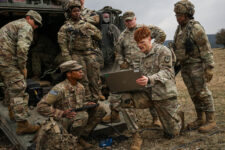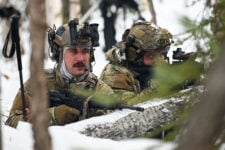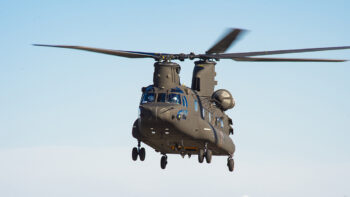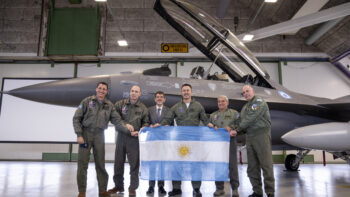 Washington: The Pentagon is offering field commanders control of counterintelligence operations to cope with the never-ceasing efforts by countries such as China, Iran and Israel to gain access to classified information and technology.
Washington: The Pentagon is offering field commanders control of counterintelligence operations to cope with the never-ceasing efforts by countries such as China, Iran and Israel to gain access to classified information and technology.
Undersecretary of Defense for Intelligence Mike Vickers approved the plan in an Oct. 5 memorandum. Groups such as Central Command and Special Operations Command can now choose to do their own CI work within their organizations, according to the memo. Formal investigations are still handled by the services.
“We gave the [combat commands] an option to develop an organic CI capability . . . or to rely on [the Defense Department],” Pentagon spokesman Lt. Col. James Gregory said. “We did not want to legislate either way but instead wanted to give [them] an option.” The decision comes as the Pentagon and intelligence community are preparing for a $25 billion to $40 billion budget cut over the next decade.
In the past, combat commanders were forced to depend on Army, Navy and Air Force units — known as Military Defense Counterintelligence Organizations — to handle their counterintel work.
The Army unit, uniquely, is headquartered in the service’s counterintelligence directorate. That unit oversees CI work at military commands in Africa, Europe, South and Central America.
The Navy unit is housed under the Naval Criminal Investigative Service. It serves Pacific Command and Joint Forces Command. Air Force counterintel specialists in the service’s office of special investigations handle Central Command and Northern Command. They also handle Special Operations, Transportation and Strategic Commands.
The command-led CI units will work with those service-led CI organizations on formal investigations, Gregory said. The command-level units have sprung up from changes made last December to the department’s rules on counterintelligence operations. Those changes are classified.
These shift are the latest in a number of intelligence changes implemented by the Pentagon in recent months. In July, Vickers approved the creation of a new Air Force intelligence cell to analyze activities of foreign-based commercial aircraft. The service-led Civil Aviation Intelligence Analysis Center will be supported by the Air Force’s 29th Intelligence Squadron. The squadron specializes in signals intelligence and is headquartered at Ft. Meade, Md., home of the national Security Agency.
Norway’s top officer on his ‘biggest challenge,’ next frigate and new NATO neighbors
Gen. Eirik Kristoffersen, Norway’s Chief of Defense, talks to Breaking Defense about his plans for spending on new frigates and subs, the challenges of upgrading Norway’s “digital backbone” and refilling the military’s stocks.



























